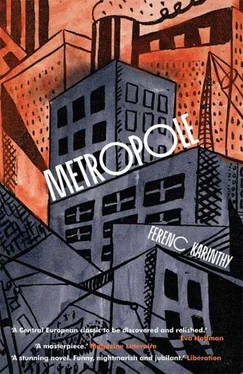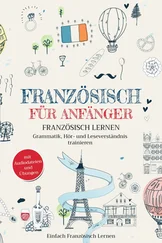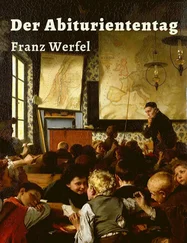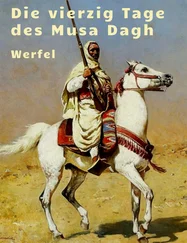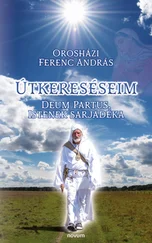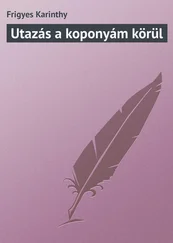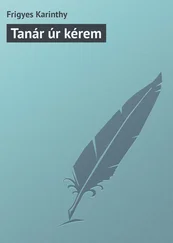A little way down the road they were building barricades. They had taken up the paving stones and gathered furniture from the nearby houses, continuing to bring out sideboards and pianos, also building a small hill of sand and pebbles as wide and high as they could on top of which they fixed a flag.
A line of uniformed men with guns were waiting in riot order on the next corner, blocking the side-street, their uniforms consisting of those ubiquitous canvas overalls and tunics. The crowd recoiled but a bunch of young women started teasing them. They approached ever closer, clapping and dancing, however much the officer in command yelled at them, taking no notice of him but pinning flowers in the young men’s berets and when they raised their guns, planting one in the barrel too. This encouraged others to come forward, offering them cigarettes, embracing them from front and from rear, slapping their shoulders, shaking their hands and smiling, loudly explaining the state of affairs to them. Within a couple of minutes of this display of friendship the soldiers had been unarmed. The side street that had been blocked off now lay open and the crowd swept down it, carrying Budai with them. Soldiers who a few moments ago were barring their way joined them now, men in tunics marching along, laughing and singing with the rest. Here and there you could see a member of the crowd carrying one of the official rifles.
Reaching a narrow street, they merged with a boisterous crowd already there. A large anonymous grey building looked down on them, all the windows of its four storeys full of curious faces. There was a great deal of coming and going in the smaller houses opposite. The whole street felt like an ants’ nest. Budai tried to push his way through and saw that the gates of the grey building were locked, its great iron doors barred and reinforced with bolts and straps. A tank sat in front of it, blocking the entrance with its weight of metal.
It wasn’t clear to him quite what was happening so, following a hunch, he walked into one of the houses opposite and though the gateway, the stairs and internal corridors were already packed with people no-one asked him where he was going. He reached the top floor without any difficulty and went through an open door into a flat facing the street front. There were a number of people already in the various rooms. Clearly they could not all be living here, in fact the tenants themselves might be elsewhere. He stepped out onto the balcony and looked down on the seething masses as waves and counter-waves of them flowed to and fro. He also took the opportunity of observing the neighbouring houses and assumed they were as packed as this one was.
Opposite him in one of the first-floor windows of the grey building people were setting up a loudspeaker to address the street. The crowd below watched this suspiciously, a little quieter now than before, every so often shouting something in mock encouragement. A buzz and crackle signalled that the loudspeaker had been switched on. The set started to whistle and fizz. Once the interference was gone, a female voice was heard gabbling something very fast, followed by a few seconds heavy with silence, followed by the striking of a gong. Then a deeper, more resonant male voice addressed the crowd in ceremonial fashion:
‘ Tchetchencho… ’
But the very first word roused a chorus of disapproval, whistles, boos, and general grumbling. Even the slim black girl leaning on the balcony railings next to him shook her fist in anger. The voice repeated slightly less certainly:
‘ Tchetchencho… ’
This roused such an explosion of elemental rage the speaker couldn’t go on. A brick sailed over the street. It must have been thrown from the very house Budai himself was occupying. It only succeeded in hitting the wall of the grey building where it shattered and fell to the ground. The second struck the window-frame, the third hit the loudspeaker full on. The loudspeaker fell silent. The people gathered in the windows of the grey building vanished: the onlookers drew back. In front of the gate the tank started up, its turret swung around, the barrel extending menacingly from the closed metal box. The people in the street moved aside but not very far, remaining close to the tank, chanting slogans at its invisible crew, raising their arms in oaths of allegiance. Then they sang their anthem again:
Tchetety top debette
Etek glö tchri fefé…
In the meanwhile others continued to throw bricks so that eventually Budai felt anxious enough to leave the building. On his way out he came across great piles of bricks in the yard that served as an ammunition store for the besiegers who had formed a human chain to convey the bricks to the front line.
Just as he reached the gate a few trucks appeared at the end of the street full of uniformed men. They advanced together blowing their horns, forcing their way through the crowd that was not at all keen to let them through. A tall, muscular man leapt on top of the leading truck — he must have been an officer though he wore the same uniform as the others, without insignia. He spoke sharply, clearly, in a voice that could be heard a long way off, a voice used to command that rose over the shouting and yelling. He spoke briefly in a clipped military tone, his gestures decisive and harsh, waving his arms: he was probably calling on the mob to disperse. But he was shouted down by the impatient and ever more hostile crowd and soon enough a brick was flying in his direction too. Though the brick passed within inches of him, the officer showed no fear. He cast a contemptuous eye in the direction from which the brick had come and swung from the truck in a manner that implied impending danger.
Uniformed men leapt off the truck and formed a cordon to cover the whole width of the street. They started to press the crowd back but there weren’t very many of them and their combined physical force was nowhere near enough, not even after repeated efforts. Then they tried using the fire hose, aiming jets right and left. Those in front who were struck directly crept back into the ranks, drenched and dripping, but one well-aimed brick struck the hand of the soldier holding the hose and broke the hose in the process.
Next the soldiers started lobbing smoke bombs. This was more effective: the crowd did begin to break up and were forced back, then had to run away to avoid the white billowing puffballs. The smoke did not reach Budai but he was caught up with everyone rushing this way and that. Some turned down the crossroads directly behind them. Budai followed, then skipped over a nearby park fence and scampered down to the next corner.
As he stopped to get his breath he spotted a half-lowered set of awnings under which a lot of others were ducking and vanishing. He joined them to see what was going on. There were steps leading down into a kind of cellar lit only by naked light-bulbs, the place lukewarm and smelling faintly of hemp. It must have been the storeroom of a rope and canvas shop as there were rows of folded sacks beside the lime-washed walls with great rolls of canvas and rope piled over them from floor to ceiling. Other shelves were packed with balls of string and straps. And then there was the crowd, a great mix of men, women and youths. Budai could not decide at first what they were doing here: could they be examining the rope?
A smaller alcove opened to the left and people were crowding into it. He had to stand on tiptoe to see what was happening. A tall, jaundiced-looking, droopy-moustached man in a leather jacket was distributing machineguns from a box, exchanging a few words with whoever was next in line, then shaking hands before handing the gun over. Some people were wearing uniforms, those of the kind he already knew: conductors, boys and girls in green waterproofs, a lot of common canvas tunics. There was even a fireman among them. Others were wearing various forms of combat gear, a mixture of the civilian and the camouflaged military, as well as boots, felt waistcoats, earth-coloured raincoats, shoulder straps and ammunition belts as well as fur hats or peaked police caps. There were even a few in striped prison outfits, convicts with shorn hair, of the sort who had been in the procession in the morning. Could they have been part of the parade or were they just protesters in fancy dress? And if they really were prisoners, what had they been imprisoned for? Were they criminals or political enemies? And how, in any case, did they manage to get free?
Читать дальше
